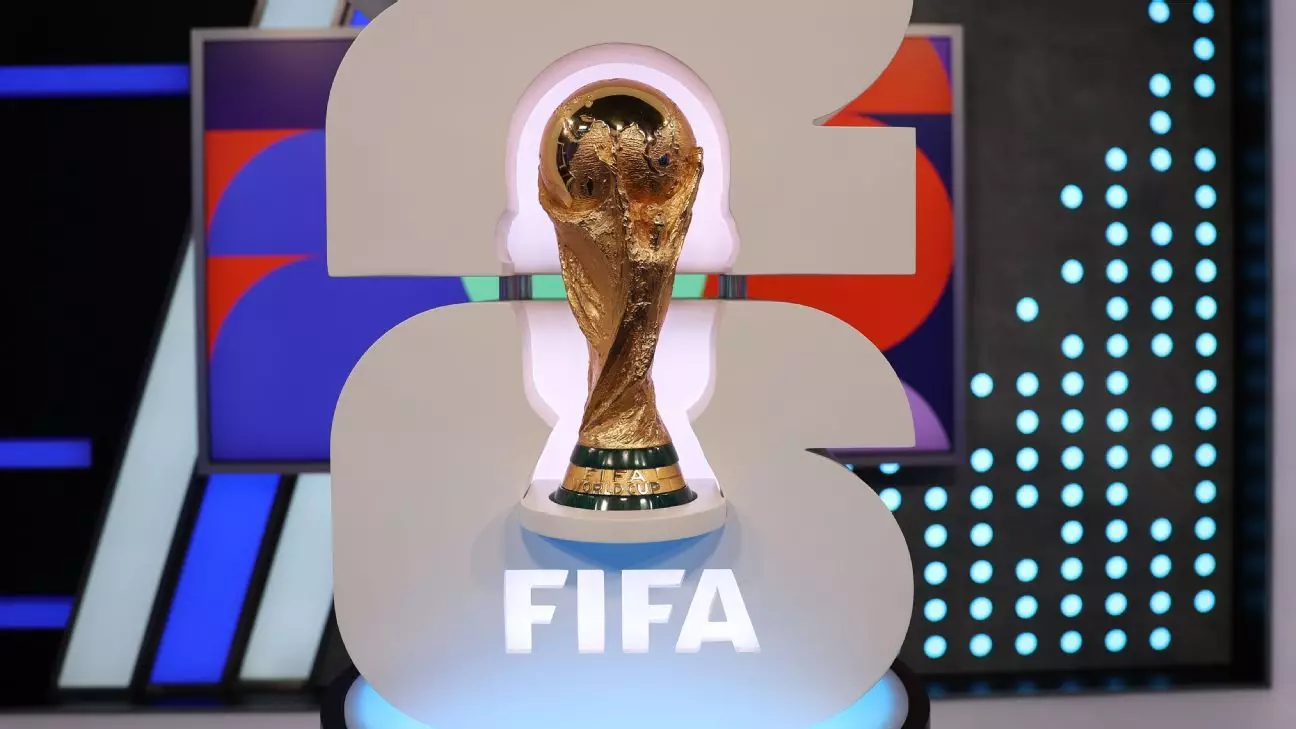The Norwegian Football Federation (NFF) has made headlines with its decisive stance against FIFA’s decision to award the hosting rights for the upcoming World Cups in 2030 and 2034. By announcing its intention to vote against these approvals by acclamation, the NFF sheds light on a broader issue within the realm of international football governance. This bold action raises questions about transparency, accountability, and the principles that should govern such significant global sporting events.
FIFA is poised to confirm a sole bid from a tripartite consortium of Morocco, Spain, and Portugal for the 2030 World Cup while Saudi Arabia is the only contender for the 2034 edition. Despite this apparent simplicity in the bidding landscape, the NFF has voiced serious concerns regarding the method by which these host nations have been selected. Their criticism focuses not solely on the bids themselves but rather on the procedural integrity underpinning FIFA’s decision-making process. The NFF argues that the way in which host nations are chosen lacks transparency and seems to bypass established principles that should govern such crucial decisions.
The NFF’s official statement underscores these concerns, emphasizing that it cannot endorse a process they view as inconsistent with FIFA’s own reform pledges. This position advocates for a more accountable framework, one that resonates with the organization’s stated goals of good governance and the promotion of fair play. The federation’s insistence on formally documenting its criticism in FIFA’s minutes indicates a commitment to accountability that is noticeably missing from the current bidding rules.
NFF President Lise Klaveness articulated the federation’s broader aim: to instigate a shift in how FIFA conducts its business. With references to FIFA’s own mandates regarding human rights and operational due diligence, Klaveness argues that the organization has not adequately incorporated these principles into its bidding processes. This oversight poses a significant risk—not just to the integrity of the World Cup, but to the very essence of football as a sport that should champion unity, fairness, and ethical conduct.
The lack of an open bidding process is touted as undermining trust in FIFA itself. By voicing their dissent, the NFF seeks to compel FIFA to adopt a more inclusive, transparent, and just approach that aligns with global standards for governance. In advocating for a rules-based framework, the NFF is encouraging a reevaluation of how such influential decisions are made within the football community.
The implications of the NFF’s stand extend beyond Norway’s borders. They challenge the legitimacy of FIFA’s authority as the “global custodian of football,” which now finds its operations adjacent to allegations of inconsistency. With numerous nations previously expressing interest in hosting the 2034 World Cup—Australia and Indonesia among them—the swift consolidation of bids not only raises eyebrows but also enhances the perception of an unregulated auction of football’s crown jewel.
Furthermore, the discontent articulated by the NFF is echoed by various global stakeholders who see themselves as being excluded from crucial decisions affecting their game. As such, the federation’s actions could potentially catalyze a ripple effect, encouraging other nations to similarly challenge FIFA’s processes and advocate for more fair and equitable competition in the global sports arena.
As the extraordinary Congress approaches, the NFF’s stance sends a powerful message advocating for reform within FIFA. The call for transparency, adherence to established principles, and a commitment to human rights and governance will undoubtedly resonate with other stakeholders disillusioned by the existing approach. This moment stands as a turning point for FIFA which, if unheeded, risks further eroding trust in its ability to govern the beautiful game. If the NFF’s initiative secures traction, the hope of a more accountable and trustworthy FIFA could lead to a renewed global commitment to safeguarding the values that underpin football—a sport designed to unite, inspire, and elevate humanity.

Leave a Reply